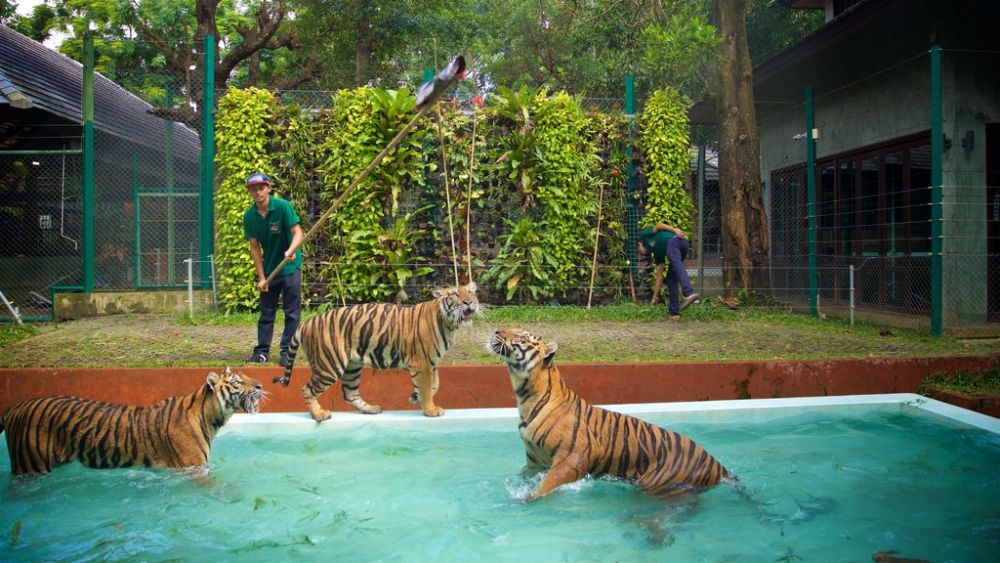

The inception of Tiger Kingdom in Phuket, Thailand, marked a unique development in the island’s tourism journey. This attraction was established with the idea of providing tourists with an opportunity to interact closely with tigers, under supervised conditions. The facility opened its doors to the public in 2013, evolving from other similar attractions in the northern part of Thailand.
Originating from a background that involved tiger conservation and breeding programs, the founders of Tiger Kingdom aimed to create a space where these magnificent animals could live in proximity to humans. The purpose was not just entertainment but also education and awareness about the conservation of tigers.
Over the years, Tiger Kingdom has become a significant tourist draw in Phuket. The facility allows visitors to get up close with tigers of different ages and sizes, providing memorable experiences while learning about these majestic creatures. The emphasis on ethical treatment and the well-being of the tigers has been a cornerstone of the institution's philosophy.
The presence of Tiger Kingdom has had a noticeable impact on Phuket's tourism scene. It complements other attractions such as the beautiful beaches, vibrant nightlife, and cultural sites, offering visitors a more diverse travel experience. It particularly caters to animal lovers and those looking for unique photo opportunities.
With an increase in the global emphasis on responsible tourism, Tiger Kingdom Phuket has adjusted its operations to align with sustainable practices and animal welfare standards. Visitors are becoming more conscientious about the ethics of animal interactions, prompting the Tiger Kingdom to maintain a strong focus on education and conservation messaging.
The ongoing trend toward experiential and educational travel has seen Tiger Kingdom offer more informative sessions, guided tours, and interactive experiences that aim to leave tourists with a greater understanding of tigers and the challenges they face in the wild.
Like many attractions involving wildlife, Tiger Kingdom has faced scrutiny and controversy concerning the ethical implications of keeping tigers in captivity and allowing human interactions. The establishment continues to address these challenges by adhering to regulations, participating in conservation efforts, and ensuring that their animals are kept in comfortable and stimulating environments.
As tourism evolves, Tiger Kingdom Phuket is likely to continue adapting to the trends and expectations of the modern traveler. This will involve a balance of providing extraordinary experiences while maintaining a commitment to animal welfare and conservation efforts that contribute to the survival of the tiger species.
In conclusion, the history of tourism at Tiger Kingdom in Phuket intertwines with the global conversation about wildlife tourism. It stands as a testament to the region's ability to innovate and create unique tourist attractions that resonate with visitors from all over the world.